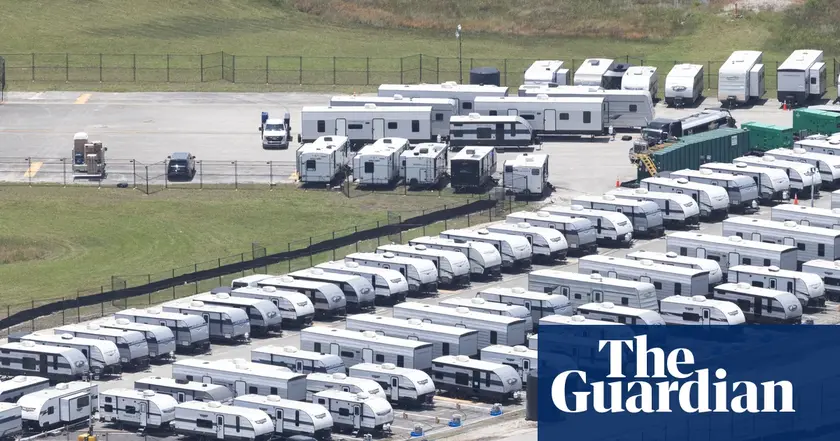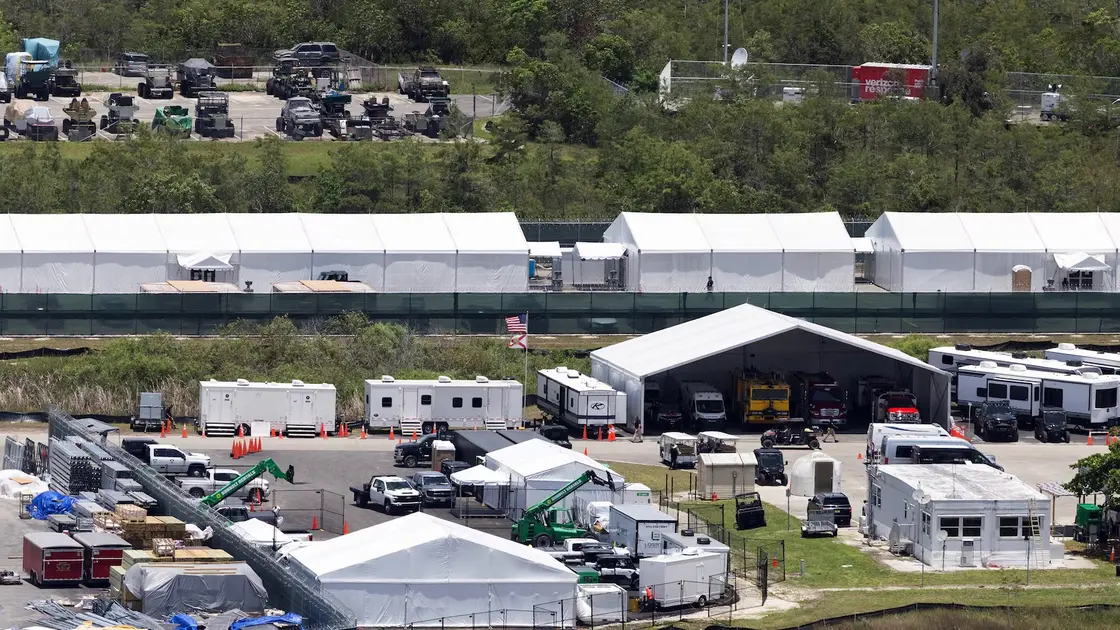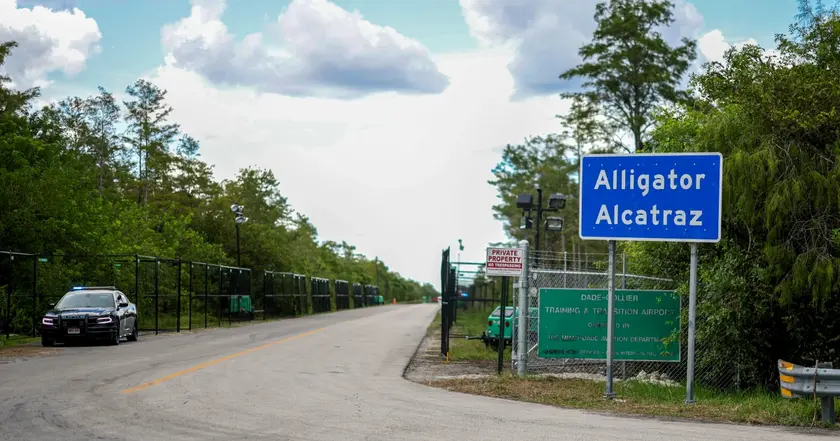T4K3.news
Florida judge closes Alligator Alcatraz
A Miami judge orders the closure of the Alligator Alcatraz detention site within 60 days as part of a wind-down tied to environmental concerns

A federal judge in Miami orders the closure of the detention site within 60 days, citing harm to the Everglades and questions about detainee rights.
Florida judge closes Trumps Alligator Alcatraz immigration jail
A federal judge in Miami ordered the closure of the Alligator Alcatraz detention camp within 60 days and barred new detainees as the site is wound down. The ruling follows a temporary restraining order that halted further construction at the remote camp built on a disused airfield near the Everglades, which critics say housed detainees under harsh conditions. The facility, once connected to a broader deportation drive, drew national scrutiny for due process concerns and environmental damage to a fragile wetlands system.
Judge Kathleen Williams found the site caused irreparable harm to the Everglades and noted that earlier plans to develop the land into a tourist airport were rejected for environmental reasons. She highlighted pledges by Florida leaders to protect the wetlands and said the order simply enforces those promises. The decision blocks any more construction and caps the current detainee population, estimated around 700, during the wind-down. When the 60 days pass, materials, fencing and other equipment must be removed as the site reverts to a natural area.
Key Takeaways
"This is a landmark victory for the Everglades"
Eve Samples, executive director of Friends of the Everglades
"There are consequences for ignoring environmental laws"
Eve Samples
"This order upholds the basic requirements of legislation designed to fulfill those promises"
Judge Kathleen Williams
"Protecting the Everglades is not optional"
Tribal spokesperson
The ruling tests the balance between national immigration policy and environmental safeguards. By tying the project to ecological damage, the court reframes detention sites as potential legal liabilities rather than quick fixes for border control. The decision could embolden environmental groups and Native American allies who challenged the project, potentially shaping future challenges to similar sites. At the same time, officials have signaled plans to shift capacity to other facilities, raising questions about how U.S. immigration enforcement will adapt if more sites come under legal scrutiny. The decision also foregrounds the human dimension, as hundreds of detainees were moved and a broader political fight over detention capacity looms in the background.
Looking ahead, the case may prompt appeals and ongoing negotiations over how to reconcile urgent border needs with environmental and civil rights standards. The rhetoric around the camp’s designation as a threat to public safety will be tested against a court that prioritized ecosystem protection and due process. As capacity gaps persist, local and state authorities face the risk of intensified political blowback from both immigration hardliners and environmental advocates.
Highlights
- Everglades justice is a test case for federal action
- Dignity for detainees, respect for the wetlands
- Environmental laws meet the law in the courtroom
- Protecting the Everglades is not optional
Environmental and political risk
The ruling intersects immigration policy with environmental protection, inviting appeals and triggering political backlash from officials and supporters of detention expansion. The decision could influence future detention projects and environmental challenges.
The case leaves a lasting question about how communities safeguard fragile ecosystems while managing complex immigration challenges.
Enjoyed this? Let your friends know!
Related News

Alligator Alcatraz incident denied by Florida officials

Alligator Alcatraz update

Florida to open second immigration detention center

Everglades detention center emptied after court ruling

Alligator Alcatraz winds down

Gaza civilian toll data

Federal judge blocks construction of Alligator Alcatraz detention center

Detainees moved from Alligator Alcatraz after court order
